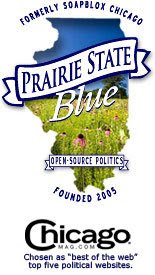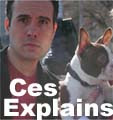Bush's summons to serve as a juror in the drunken-driving case was, in retrospect, a fateful moment in his political career: by getting excused from jury duty [Bush] was able to avoid questions that would have required him to disclose his own 1976 arrest and conviction for driving under the influence of alcohol (DUI) in Kennebunkport, Maine -- an incident that didn't become public until the closing days of the 2000 campaign. (Bush, who had publicly declared his willingness to serve, had left blank on his jury questionnaire whether he had ever been "accused" in a criminal case.)Gonzales clearly should not be confirmed as the new Attorney General. After all, lying and getting off in the back room were the reasons Bill Clinton was impeached.
Asked by Sen. Patrick Leahy to describe "in detail" the only court appearance he ever made on behalf of Bush, Gonzales—who was then chief counsel to the Texas governor -- wrote that he had accompanied Bush the day he went to court "prepared to serve on a jury." While there, Gonzales wrote, he "observed" the defense lawyer make a motion to strike Bush from the jury panel "to which the prosecutor did not object." Asked by the judge whether he had "any views on this," Gonzales recalled, he said he did not.
While Gonzales's account tracks with the official court transcript, it leaves out a key part of what happened that day, according to Travis County Judge David Crain. In separate interviews, Crain—along with Wahlberg and prosecutor John Lastovica -- told Newsweek that, before the case began, Gonzales asked to have an off-the-record conference in the judge's chambers. Gonzales then asked Crain to "consider" striking Bush from the jury, making the novel "conflict of interest" argument that the Texas governor might one day be asked to pardon the defendant (who worked at an Austin nightclub called Sugar's), the judge said.
"He [Gonzales] raised the issue," Crain said. Crain said he found Gonzales's argument surprising, since it was "extremely unlikely" that a drunken-driving conviction would ever lead to a pardon petition to Bush. But "out of deference" to the governor, Crain said, the other lawyers went along. Wahlberg said he agreed to make the motion striking Bush because he didn't want the hard-line governor on his jury anyway. But there was little doubt among the participants as to what was going on.
"In public, they were making a big show of how he was prepared to serve," said Crain. "In the back room, they were trying to get him off."
(emphasis added)













No comments:
Post a Comment